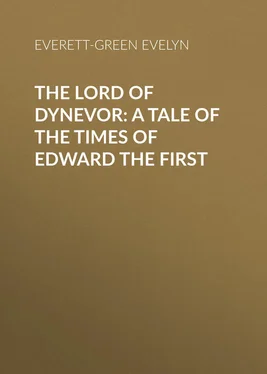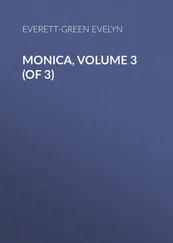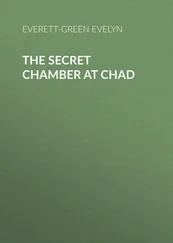Evelyn Everett-Green - The Lord of Dynevor - A Tale of the Times of Edward the First
Здесь есть возможность читать онлайн «Evelyn Everett-Green - The Lord of Dynevor - A Tale of the Times of Edward the First» — ознакомительный отрывок электронной книги совершенно бесплатно, а после прочтения отрывка купить полную версию. В некоторых случаях можно слушать аудио, скачать через торрент в формате fb2 и присутствует краткое содержание. Жанр: foreign_antique, foreign_prose, на английском языке. Описание произведения, (предисловие) а так же отзывы посетителей доступны на портале библиотеки ЛибКат.
- Название:The Lord of Dynevor: A Tale of the Times of Edward the First
- Автор:
- Жанр:
- Год:неизвестен
- ISBN:нет данных
- Рейтинг книги:4 / 5. Голосов: 1
-
Избранное:Добавить в избранное
- Отзывы:
-
Ваша оценка:
- 80
- 1
- 2
- 3
- 4
- 5
The Lord of Dynevor: A Tale of the Times of Edward the First: краткое содержание, описание и аннотация
Предлагаем к чтению аннотацию, описание, краткое содержание или предисловие (зависит от того, что написал сам автор книги «The Lord of Dynevor: A Tale of the Times of Edward the First»). Если вы не нашли необходимую информацию о книге — напишите в комментариях, мы постараемся отыскать её.
The Lord of Dynevor: A Tale of the Times of Edward the First — читать онлайн ознакомительный отрывок
Ниже представлен текст книги, разбитый по страницам. Система сохранения места последней прочитанной страницы, позволяет с удобством читать онлайн бесплатно книгу «The Lord of Dynevor: A Tale of the Times of Edward the First», без необходимости каждый раз заново искать на чём Вы остановились. Поставьте закладку, и сможете в любой момент перейти на страницу, на которой закончили чтение.
Интервал:
Закладка:
"Who are these folks?" asked Wendot; "and whence come they? And why have they thus presented themselves unarmed at Dynevor? Is it an errand of peace? And why speakest thou of women and children?"
"Why, brother, because the traveller has his little daughter with him, and her woman is in their train of servants. I know not what has brought them hither, but I gather they have lost their road, and lighted by chance on Dynevor. Methinks they are on a visit to the Abbey of Strata Florida; but at least they come as simple, unarmed strangers, and it is the boast of Wales that even unarmed foes may travel through the breadth and length of the land and meet no harm from its sons. For my part I would have it always so. I would not wage war on all alike. Doubtless there are those, even amongst the English, who are men of bravery and honour."
"I doubt it not," answered Wendot, with a gravity rather beyond his years. "If all our mother teaches us be true, we Welshmen have been worse enemies to one another than ever the English have been. I would not let Llewelyn or Howel hear me say so, and I would fain believe it not. But when we see how this fair land has been torn and rent by the struggles after land and power, and how our own kinsman, Meredith ap Res, is toying with Edward, and striving to take from us the lands we hold yet – so greatly diminished from the old portion claimed by the lords of Dynevor – we cannot call the English our only or even our greatest foes. Ah, if Wales would but throw aside all her petty feuds, and join as brothers fighting shoulder to shoulder for her independence, then might there be some hope! But now – "
Griffeth was looking with wide-open, wondering eyes into his brother's face. He loved and reverenced Wendot in a fashion that was remarkable, seeing that the elder brother was but two years and a half his senior. But Wendot had always been grave and thoughtful beyond his years, and had been taken much into the counsels of his parents, so that questions which were almost new to the younger lad had been thought much of by the eldest, the heir of the house of Dynevor.
"Why, brother, thou talkest like a veritable monk for learning," he said. "I knew not thou hadst the gift of such eloquent speech. Methought it was the duty of every free-born son of Wales to hate the English tyrant."
"Ay, and so I do when I think of his monstrous claims," cried Wendot with flashing eyes. "Who is the King of England that he should lay claim to our lands, our homage, our submission? My blood boils in my veins when I think of things thus. And yet there are moments when it seems the lesser ill to yield such homage to one whom the world praises as statesman and soldier, than to see our land torn and distracted by petty feuds, and split up into a hundred hostile factions. But let us not talk further of this; it cuts me to the heart to think of it. Tell me more of these same travellers. How did our parents receive them? And how long purpose they to stay?"
"Nay, that I have not heard. I was away over yon fell with Gelert when I saw the company approach the castle, and ere I could find entrance the strangers had been received and welcomed. The father of the maiden is an English earl, Lord Montacute they call him. He is tall and soldier-like, with an air of command like unto our father's. The damsel is a fair-faced maiden, who scarce opens her lips; but she keeps close to our mother's side, and seems loath to leave her for a moment. I heard her father say that she had no mother of her own. Her name, they say, is Lady Gertrude."
"A damsel at Dynevor," said Wendot, with a smile; "methinks that will please the mother well."
"Come and see," cried Griffeth eagerly. "Let us hasten down to the castle together."
It was easy work for the brothers to traverse the rocky pathway. Dangerous as the descent looked to others, they were as surefooted as young chamois, and sprang from rock to rock with the utmost confidence. The long summer sunlight came streaming up the valley in level rays of shimmering gold, bathing the loftier crags in lambent fire, and filling the lower lands with layers of soft shadow flecked here and there with gold. A sudden turn in the narrow gorge, through which ran a brawling tributary of the wider Towy, brought the brothers full in sight of their ancestral home, and for a few seconds they paused breathless, gazing with an unspeakable and ardent love upon the fair scene before them.
The castle of Dynevor (or Dinas Vawr = Great Palace) stood in a commanding position upon a rocky plateau overlooking the river Towy. From its size and splendour – as splendour went in those days – it had long been a favourite residence with the princes of South Wales; and in a recent readjustment of disputed lands, consequent upon the perpetual petty strife that was ruining the land, Res Vychan, the present Lord of Dynevor, had made some considerable sacrifice in order to keep in his own hands the fair palace of his fathers.
The majestic pile stood out boldly from the mountain side, and was approached by a winding road from the valley. A mere glance showed how strong was the position it occupied, and how difficult such a place would be to capture. On two sides the rock fell away almost sheer from the castle walls, whilst on the other two a deep moat had been dug, which was fed by small mountain rivulets that never ran dry; and the entrance was commanded by a drawbridge, whose frowning portcullis was kept by a grim warder looking fully equal to the office allotted to him.
Lovely views were commanded from the narrow windows of the castle, and from the battlements and the terraced walk that ran along two sides of the building. And rough and rude as were the manners and customs of the period, and partially uncivilized as the country was in those far-off days, there was a strong vein of poetry lying latent in its sons and daughters, and an ardent love for the beautiful in nature and for the country they called their own, which went far to redeem their natures from mere savagery and brute ferocity.
This passionate love for their home was strong in all the brothers of the house of Dynevor, and was deepened and intensified by the sense of uncertainty now pervading the whole country with regard to foreign aggression and the ever-increasing claims upon Welsh lands by the English invaders. A sense as of coming doom hung over the fair landscape, and Wendot's eyes grew dreamy as he stood gazing on the familiar scene, and Griffeth had to touch his arm and hurry him down to the castle.
"Mother will be wanting us," he said. "What is the matter, Wendot? Methinks I see the tears in thine eyes."
"Nay, nay; tears are for women," answered Wendot with glowing cheeks, as he dashed his hand across his eyes. "It is for us men to fight for our rightful inheritance, that the women may not have to weep for their desolated homes."
Griffeth gave him a quick look, and then his eyes travelled lovingly over the wide, fair scene, to the purple shadows and curling mists of the valley, the dark mysterious woods in front, the clear, vivid sunlight on the mountain tops, and the serried battlements of the castle, now rising into larger proportions as the boys dropped down the hillside towards the postern door, which led out upon the wild fell. There was something of mute wistfulness in his own gaze as he did so.
"Brother," he said thoughtfully, "I think I know what those feelings are which bring tears to the eyes of men – tears of which they need feel no shame. Fear not to share with me all thy inmost thoughts. Have we not ever been brothers in all things?"
"Ay, truly have we; and I would keep nothing back, only I scarce know how to frame my lips to give utterance to the thoughts which come crowding into my brain. But see, we have no time for communing now. Go on up the path to the postern; it is too narrow for company."
Читать дальшеИнтервал:
Закладка:
Похожие книги на «The Lord of Dynevor: A Tale of the Times of Edward the First»
Представляем Вашему вниманию похожие книги на «The Lord of Dynevor: A Tale of the Times of Edward the First» списком для выбора. Мы отобрали схожую по названию и смыслу литературу в надежде предоставить читателям больше вариантов отыскать новые, интересные, ещё непрочитанные произведения.
Обсуждение, отзывы о книге «The Lord of Dynevor: A Tale of the Times of Edward the First» и просто собственные мнения читателей. Оставьте ваши комментарии, напишите, что Вы думаете о произведении, его смысле или главных героях. Укажите что конкретно понравилось, а что нет, и почему Вы так считаете.












